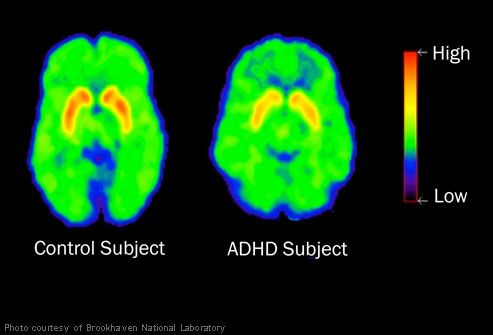For this blog I am going to be discussing whether ADHD is a real disorder. Because mental disorders are defined by their symptoms, there is significant debate on what constitutes a legitimate disorder. ADHD has been particularly extremely difficult to diagnose and it has been difficult to discover whether the prescriptions are appropriate.
:max_bytes(150000):strip_icc()/adhd-overview-4157275-6982f7abb53c482593834abbc2f3ab73.png)
Because the principles of ADHD become apparent in early years and many many normal children exhibit the symptoms of ADHD, including inattention, hyperactivity, and impulsivity, it is very difficult to diagnose. In order to be considered disordered distractibility, the symptoms must be present early in life and continue for at least six months. In addition, to be considered a disorder the symptoms must create a real handicap in at least two areas of the person’s life, including the schoolroom, playground, home, or the community. A large majority of those diagnosed do not exhibit these symptoms, leading to the disorder to be delegitimized. Normal distractibility is often difficult to differentiate from disordered distractibility. Many normal children exhibit symptoms of inattention, hyperactivity, and impulsivity. While these symptoms describe ADHD, through examination by a professional is necessary for them to be diagnosed. The behaviors must be considered long-term, and pervasive; parents and teachers are often asked for their opinions in order to generate a proper diagnosis. Most substantial causes of the disorder are issues within the genetics as well as the neurobiology of the individual. In addition, mental disorders such as ADHD run in families, leading scientists to believe genetics play a large role in this disorder.

There must be a degree of subjectivity within mental diagnoses such as ADHD because there is a high variability within the disorder itself and many of the symptoms of each are common within children. There are three patterns of behavior that reflect ADHD; they include hyperactive-impulsive type, inattentive type, and the combined type. Because ADHD is very variable and difficult to differentiate from normal attentiveness issues, a specialist is necessary to gather information and diagnose the disorder. When diagnosing the disorder, the specialist must examine the situation, talking to the patients teachers, parents, and other close individuals. The child must be evaluated for both adjustment and mental health.

I believe ADHD is a real disorder, but because it is often difficult to diagnose, it is often over medicated and over diagnosed. UK prescriptions for stimulants have increased from 6,000 in 1994 to 345,000 in the latter half of 2003. While no medical test exists and the diagnosis relies on the subjective opinion of a diagnoser, the ADHD still has been connected to studies revolving different portions of the brain, including the frontal lobes, temporal lobes, and grey matter. Children have exhibited 3-4 percent smaller brain volumes in all of these regions. Oftentimes, trained professionals cannot agree on what constitutes ADHD, leading to more complications within the diagnosis. As a result, people without the disorder are often diagnosed which has started to hurt the legitimacy of the disorder.
Gantt, Edwin E. Taking Sides: Clashing Views on Psychological Issues. McGraw-Hill Education Create, 2018.
https://www.verywellmind.com/adhd-overview-4157275
https://www.webmd.com/add-adhd/childhood-adhd/ss/slideshow-adhd-in-children
https://www.researchgate.net/figure/Adjusted-and-Nonadjusted-Time-Trends-in-Incidence-Rates-of-Diagnosed-ADHD-by-Age-Group-at_fig2_274401149
One of my neighbors has a middle-school-aged daughter who has ADHD. When she was younger, I could remember her seemingly limitless energy—e.g., even near midnight during a neighborhood party or gathering, she would remain as active as she was at 3:00 PM. She would also frequently try to engage with people by playfully hitting them, and she would at times be excessively loud. She is much older and less susceptible to such behavior now, but she remains the primary case constituting my experience with people who legitimately have a very over-diagnosed condition.
I feel ADHD would be super hard to effectively diagnose in young children especially since kids are naturally very hyper and have short attentions spans. I will say I believe it is definitely a real thing; My 8 year old nephew has a very severe case of it and is high medicated for it. Without his medication he would be throwing bricks through windows or running around like a madman. I also think severe ADHD might also be a symptom of something larger; My nephew is too young for them to conclusively determine it, but they believe it may be an early sign of Schizophrenia.
I definitely believe that ADHD is real and in Nigeria it is really unfortunate that next to know one is tested or diagnosed and so many people suffer without any management or treatment.
I also believe ADHD is real. I don’t know if I’d characterize it as a real HARD DISEASE, it’s just hard for some people to focus but thats why there are drugs such as Aderall to help people who aren’t good with maintaining their focus.
I agree that ADHD is a real disorder, but I think it is so misunderstood and definitely over diagnosed. There are also different “levels” at which ADHD can impact individuals just like every other disorder.